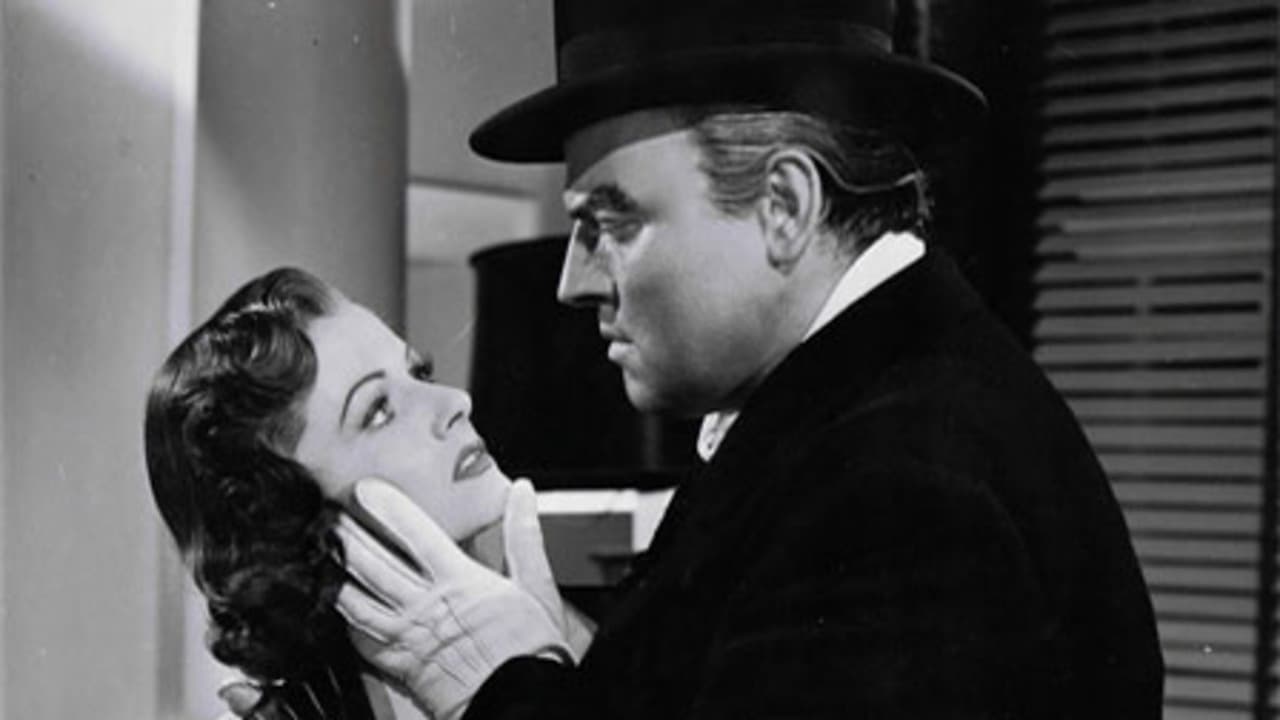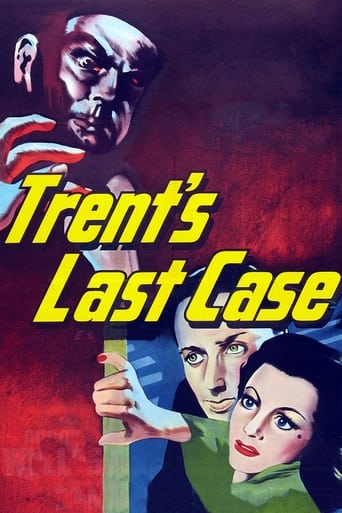

This is pure whodunit,in the grand tradition of Agatha Christie and there are similarities with the lady of crime's "murder on the links" ,but the solution is not as brilliant as hers ,because in this field,she has no equal.Anyway ,everyone who likes Christie will relish .A desirable mansion ,where a man took his own life (or was it murder?) and suspects including two secretaries,one of whom may be in love with the dead's wife and the other one may be jealous.But the main asset of the movie is the wealthy (suicidal?) businessman ,masterfully portrayed by Orson Welles whom we only see in flashbacks :the scene when we hear his formidable voice ,but only the back of his armchair gives the jitters. Michael Wilding has no gray cells,but he displays flair for clues ,as though he had be trained by Hercule Poirot.Entertaining whodunit.
... View MoreI am sure my summary above confused you. Let me explain. Although "Trent's Last Case" is not a terrible film, I would have rather it have been bad because at least it would have been interesting (albeit in a bad way). Instead, the film just meanders....and none of it seemed very interesting.The film begins with the death of some dude. Everyone is a Brit...so why does it later turn out the dead man is an American (Orson Welles). Well, that isn't important...but it did perplex me. Anyway, everyone thinks it's a suicide and the inquest rules it as such. But a dogged detective (Michael Wilding) has reason to believe it was a murder. After he finds the murderer (about halfway through the film), the movie backtracks to explaining why it occurred...though I was bored by this and especially by Welles' overblown performance (subtle it wasn't).Overall, competently made but really, really uninteresting.
... View MoreWhen TRENT'S LAST CASE first appeared in 1913 it shook up the detective mystery reading public because of the "daring" of the author's approach to the style of the novel. Up to then you had the classic straightforward mystery story from Poe to Collins to Conan Doyle, wherein you have a person who is confronted by a mystery (usually a murder case, although a theft of a jewel or property is possible). The one real innovation in this form was in 1905, when R. Austen Freeman suggested the "inverted detective story". You may be familiar with this if you watch Peter Falk as Inspector Columbo on television. Instead of the hero of the mystery story stumbling onto the scene of the result of the crime, and then piecing together the solution using the clues carefully, Freeman looked at the behavior of the perpetrator (not always a villain, by the way), and how he or she commits the crime, and how the brilliant detective slowly reveals the various inconsistencies that make the crime look less and less an accident than was intended. This became an acceptable development in detective novels.But along came Bentley. He had the audacity to suggest the fallibility of the detective. A Dupin, a Lecoq, a Holmes, a Father Brown, a Dr. Thorndyke, could be momentarily stumped or wrong, but inevitably would solve the mystery. But Bentley suggested that even a brilliant detective like Philip Trent was human - he comes to a wrong solution in this story (he suggests the victim plotted his own suicide to entrap his victim). Instead, Trent's uncle solves the case. It only shows that the trickiness of circumstantial evidence and clues can fool anyone.The story is dated - there was very casually accepted anti-Semitism in British fiction at the time (and since Sigsbee Manderson is extremely rich from stock-market manipulations, the image of Jewish stock brokers is overused in the book and even, at one point, intrudes into the movie - a newspaper editor, dictating an editorial, mentions the death of Manderson leads to suicides and panics including one in Jerusalem!). Bentley was not the only person who wrote like this. Chesterton did (and more vehemently). Even Conan-Doyle (despite his real life aid to Oscar Slater, a Jewish German suspect in a Scots murder case) occasionally used negative terms for Jews - see his "The Adventure of the Stock-Broker's Clerk". Freeman, like Chesterton and Bentley, was more openly bigoted.On the other hand, the story is interesting enough for the viewer to keep his or her opinions on the bigotry aside. The main problem about it is the suspension of disbelief regarding whether a brilliant malevolent millionaire would actually put his being in jeopardy by putting such a weird plot into motion. I suspect not. It would be easier to fire or even kill the rival.In 1952 Orson Welles was working around Europe raising money for projects, chief of which was his movie of OTHELLO. Welles performed in many films, frequently in second rate ones. He agreed to do the role of Manderson, who (like Harry Lime in a better film) only appears on screen in the last quarter of the movie, but whose spirit permeates the entire film. To make the evil millionaire more detestable Welles made the face of Manderson striking but ugly. His eyes are made beetle like by a wide brown under a strikingly straight, large nose. He looks formidable indeed, but utterly untrustworthy, and unlovable.Welles performance (mostly against Margaret Leighton and John McCallan) is pretty good. But most of the film is in the hands of dapper, clever, Michael Wilding. Wilding is not an actor of the same caliber of Welles, but he does nicely with the part of the competent and self-confident Philip Trent. Also doing a nice (and as it turns out, surprising ) job is Miles Malleson as Trent's uncle. For these three I will give the film a six.But that said, the film is otherwise too talky, not enough action (until we see what actually happened - far too late in the film). If not for the performances listed above, this film would be easily dismissible.Well, it would have one other moment of unintentional amusement. A better screenplay writer might have gone to town with a small mistake that Wilding's Trent makes when confronting McCallum. He mentions that he is aware of the latter's brilliant performance (at university) in a production of Shakespeare. The problem is that the play he mentions and the role that McCallum appeared in were not connected (i.e., the role was in another Shakespearean play). I wonder if Wilding and McCallum were aware of the blunder. If they were they didn't show any awareness of it in the filming.
... View MoreA very dull movie on a novel which was famous because it tried to be the reversal of the usual mystery novels. A long work by the amateur detective which results in an impregnable indictment of the murder, until in the end someone confesses having witnessed what was an accident. The picture is too talky. Even its denouement is talked. No suspense at all. By 1952 Herbert Wilcox had proved not to be the notable director they claimed he was in the thirties. Good performances by Michael Wilding and Orson Welles. Indifferent by an aging Margaret Lockwood.
... View More